News
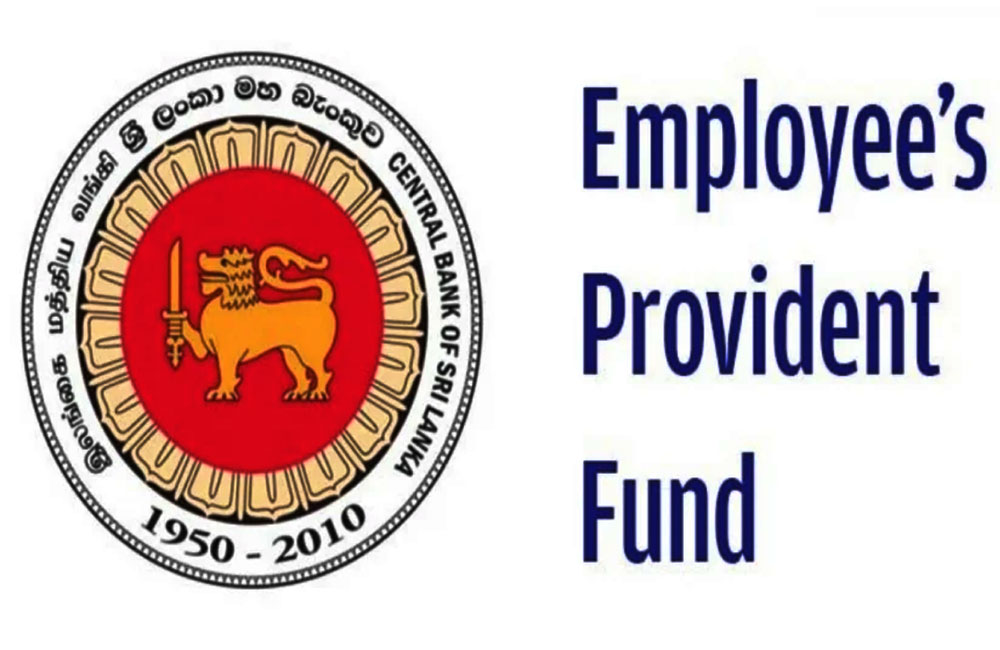
Government's move to amend EPF Act comes under a barrage of protests
The Ceylon Federation of Labour (CFL) has warned against the government’s move to amend the Employees Provident Fund (EPF) Act as part of raising the retirement age as proposed by the 2021 Budget. CFL General Secretary T.M.R. Rasseedin, in a letter to Labour Minister Nimal Siripala de Silva, has alleged that it appears that the Budget proposal is to be implemented by amending Section 9(1) of the EPF Act, preventing members from withdrawing monies in their own individual accounts before the new retiring age of 60 years.
While the CFL welcomes the government's intention of raising the retirement age of employees in the private sector based on present life expectancy of people, it was disturbed by the move to amend Section 9(1) of EPF Act.
It expressed the belief that this proposal has been made with the intention of curtailing withdrawals from the EPF during the next five years so that the cash strapped government could use the accumulated funds for its own purposes.
"This strategy can threaten the very viability of the EPF," CFL said in its letter, the copies of which had been sent to Secretaries of the Ministry of Labour and Ministry of Finance, EPF Superintendent, Commissioner-General of Labour and members of the National Labour Advisory Council.
Previously, a national retirement age and a universal old age pension to go with it has been recognised by trade unions as an acceptable strategy to raise the retirement age of workers. The present proposal, if implemented, would seriously affect employees, especially women, who have already made plans to retire in the next few years.
The CFL said in its letter that any contemplated action in this regard should not be prejudicial to the interests of members of the EPF who presently enjoy the following benefits regarding withdrawal of their balances under the EPF Act.
The union urges that existing employees be exempted from the proposed amendment making it only applicable to new employees or at least provide members with an option to retire and withdraw their EPF balances at their presently recognised retirement age for the next five years.
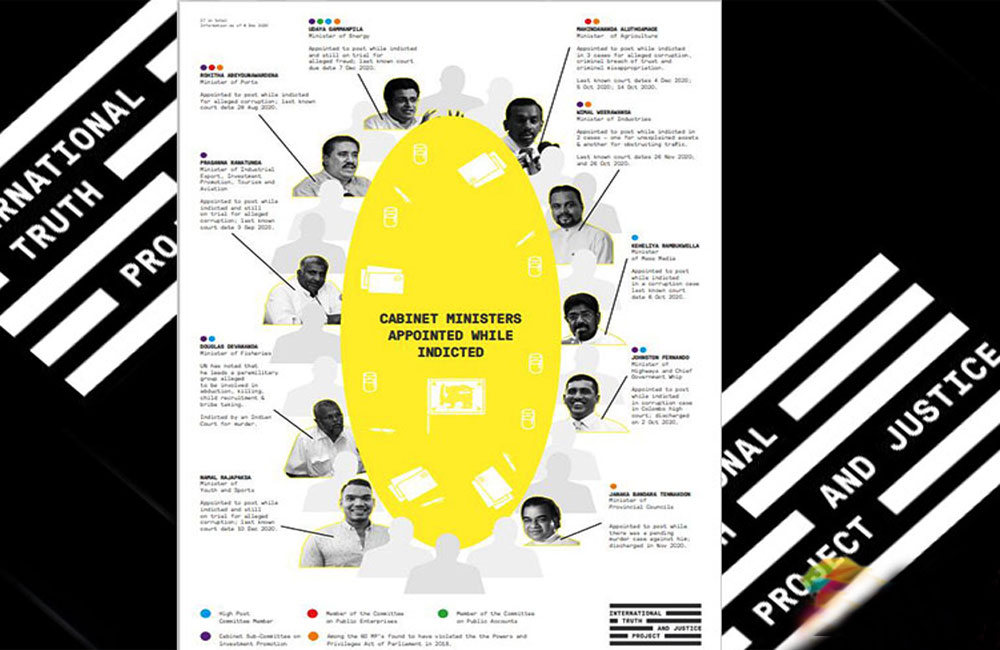
One-third of Sri Lankan Cabinet has allegations of murder or fraud - Report
A leading international human rights group has warned that nearly a third of Sri Lanka's cabinet ministers could hinder Sri Lanka's opportunities of attracting foreign direct investments into the country. "A third of Sri Lankan cabinet ministers were appointed to office this year while they stood accused of corruption or murder. In some cases the indictments are still pending," the International Project for Truth and Justice (ITJP) said.
The report by the ITPJ was released yesterday (09), marking the International Anti-Corruption Day, noting that ministries were allocated to persons despite allegations of corruption, fraud or murder against them.
"Respect for the rule of law means that if an officer is charged with a crime, he or she must clear his or her name before being appointed to the highest office in the state," the ITJP's Executive Director, Yasmin Sooka said.
“Some of the ten officials allege they were politically victimised by the previous regime – that is not the point. Everyone is equal before the law – overriding the judicial system and the institutions that support accountability will have disastrous consequences for the institutions that protect citizens’ rights, not to mention investor confidence,” she added.
The ITPJ's latest statement on the Sri Lankan government comes just a day after the 2000-page report by the Presidential Commission of Inquiry appointed to probe incidents of Political Victimisation was handed over to President Gotabaya Rajapaksa on Tuesday (08).
The three member commission was chaired by Retired Supreme Court Judge Upali Abeyratne and comprised Retired Appeal Court Judge Daya Chandrasiri Jayatilleka and Retired IGP Chandra Fernando.
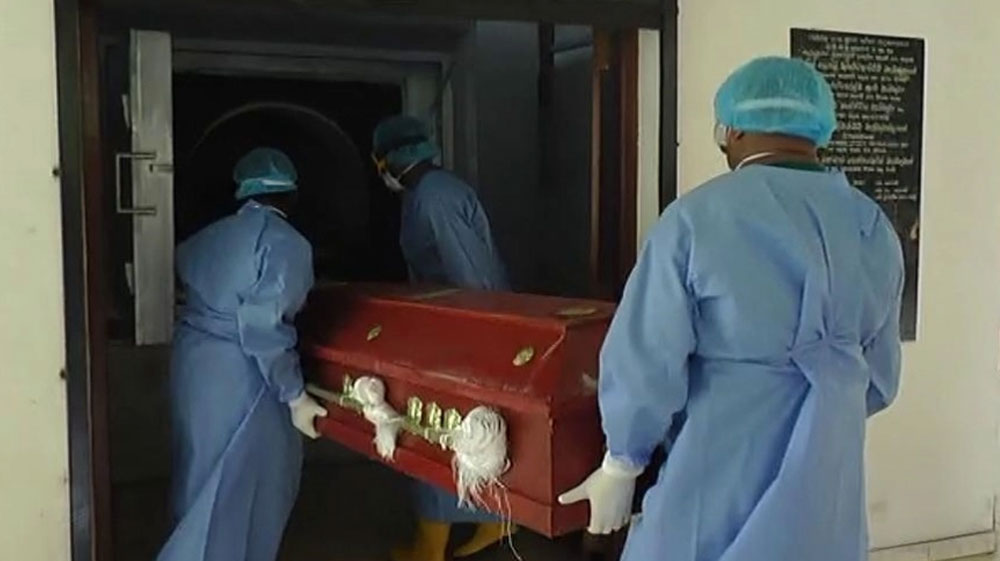
Anger over forced cremations of COVID-19 victims of Sri Lanka
Muslim families in Sri Lanka are refusing to collect the bodies of their relatives who died of Covid-19, in protest against the government enforcing cremations. A government health officer in the capital city of Colombo told The Straits Times that in the past 10 days, 19 bodies have been left unclaimed in the Colombo morgue as Muslim families demand the right to bury them as per Islamic rites.
The Sri Lankan government issued a gazette notification in April mandating cremation as the only method of disposal for all Covid-19-related deaths. The new rule set off concerns among the country's Muslims, who make up 10 per cent of Sri Lanka's 21 million population.
When Mr Mohamed's 70-year-old father died in his sleep on Nov 29 in their home in the capital city of Colombo, the 28-year-old ribbon trader said prayers with his mother and rushed his father's body to the hospital. Tests of the dead man found him positive for the coronavirus.
For the past 10 days, as the family has refused to pay for the coffin and cremation, the body remains in the morgue.
Now in an army-run quarantine centre in the eastern town of Trincomalee, Mr Mohamed, who gave only his first name fearing repercussions, said: "It pains me to leave my father's body like this, but what can I do? In Islam, we believe that a person goes to hell if not properly buried.
"My father's nickname in our area was Poonai (pussycat) because he was so soft-spoken, worked quietly and avoided conflict. I cannot imagine his body in flames," he added.
The World Health Organisation's March guidelines say victims of coronavirus "can be buried or cremated". But the Sri Lankan government's chief epidemiologist Dr Sugath Samaraweera told the media that an expert committee warned them about the island's high water table, and that burials could contaminate ground water.
Twelve petitions from civil society and Muslim and Catholic families challenged the cremation rule in the Supreme Court, demanding evidence for the claims about burials contaminating groundwater. Members of the families involved said they were traumatised by the government denying them their religious burial rights.
On Dec 1, the court dismissed all the petitions.
"Why is Sri Lanka the only country in the world to force us to cremate the dead?" asked one of the petitioners, shipping manager Fayaz Joonus, 48.
His father BHM Joonus had died on April 1, a day after the cremation notification was issued. When health authorities found the 73-year-old positive for Covid-19, the family had to buy a coffin for cremation and pay the expenses.
"It was a painful and sad experience. We Muslims consider cremation a violation of the human body," said Mr Fayas.
His father was the third Sri Lankan and the second Muslim to die of Covid-19. Since then, the country has had almost 30,000 cases of Covid-19 and 142 have died, including at least 55 Muslims.
The authorities require even those suspected of having died of Covid-19 to be cremated. (The Straits Times)
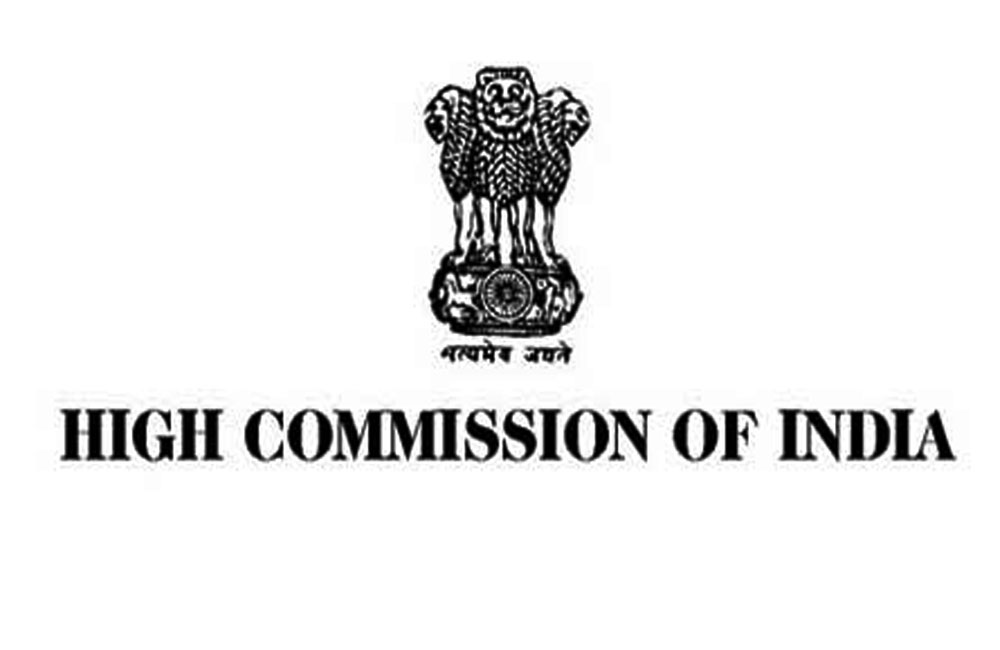
Construction of 144 transit housing units in Mannar nears completion
The construction of 144 transit housing units in Mannar is nearing completion and it will be completed next year, the Indian High Commission said in a statement. This was revealed when Deputy High Commissioner Vinod K Jacob undertook a two- day visit to Mannar and Jaffna from 7 to 8 December 2020.
During the visit, he inspected the progress at the ongoing construction of Indian project for construction of 144 transit houses for pilgrims at the Mannar Madhu Church and at the up-gradation of the historic Thiruketheeswaram Temple.
A MoU for construction of transit houses at Mannar Madhu Church was signed in August 2020 and is projected to be completed by September 2021 with an expected cost of LKR 290 million.
At the Thiruketheeswaram Temple, the Indian government has completed the restoration of the mahamandapam and other works at a total cost of more than LKR 320 million.
These two projects are an important part of the continuing and highly successful development cooperation partnership between India and Sri Lanka.
The following day (08), the Deputy High Commissioner participated in the grand opening ceremony of the 100 MW wind power project at Thambapawani in Mannar.
The Indian government has been implementing several projects in the field of Housing islandwide, deepening India-Sri Lanka cooperation in the livelihood development. India’s flagship Housing Project envisaging the construction of 50,000 houses in Sri Lanka at an overall outlay of LKR 33 billion under full grant basis is almost complete.
Agreement for construction of an additional 10,000 houses in the plantation areas at an outlay of Rs. 11 billion on grant basis was signed in August 2018.
This makes the total number of houses being built under the Indian Housing Project as 60,000. In addition, close to 3,000 houses are being built under the Model villages housing program in all districts of Sri Lanka, taking the total number of houses being built by India in Sri Lanka to 63,000.
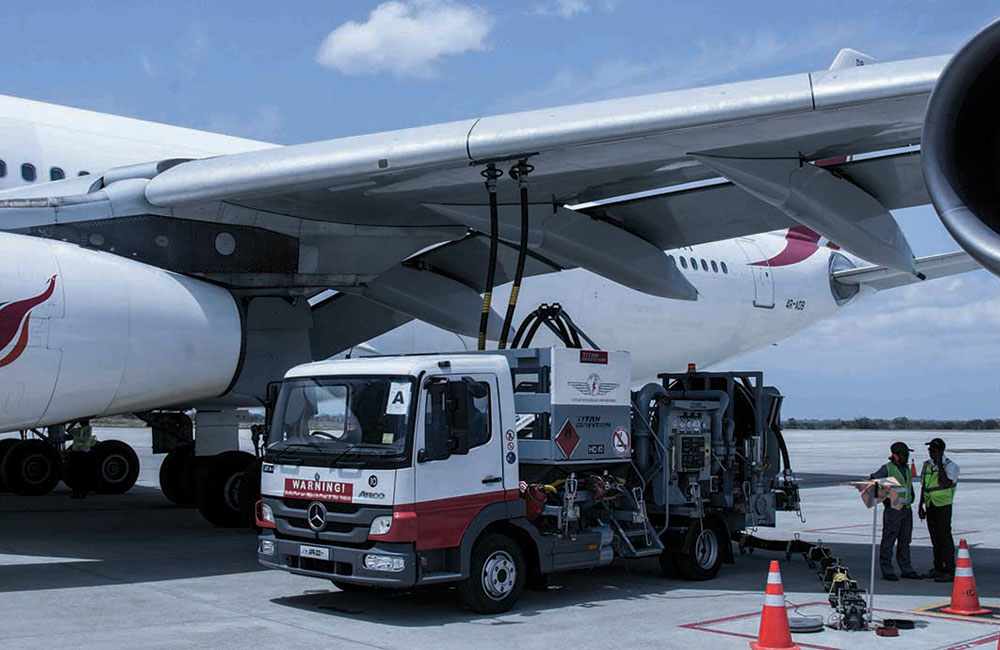
CPC to raise jet fuel imports to meet soaring local demand
Sri Lanka’s state owned Ceylon Petroleum Corporation (CPC) is devising plans to increase its jet fuel imports in the next two years anticipating a rise in domestic demand of the aviation sector in the next two years, official procurement plan revealed. CPC will increase jet fuel imports by 38.33% to 593440 metric tons next year and in addition 7.4% more to 635820 metric tons in 2022, official data showed.
According to official documents, CPC has no alternative other than to import refined petroleum products to meet the local demand as the production at Sapugaskanda oil refinery is insufficient to tackle the demand, procurement plans unveiled.
The government has to expedite the procurement process of fuel imports as the CPC refinery has to shut down for maintenance once in every two years.
The present production out put at the refinery is around 40,000 b/d which is sufficient to meet 25% to 30% of the domestic demand and the balance will have to be imported, official sources said.
The government has already given the green light for the CPC to resume the long-planned project to expand crude oil processing capacity of its refinery at Sapugaskanda.
The CPC's proposal has received Cabinet approval recently to devise a new feasibility study to determine the scope, technical, operational, and financial feasibility of the planned 100,000-b/d expansion.
It will also focus on several alternative proposals to enhance the refinery’s existing capacity, according to Government Information Department of Government Information.
The sales volume of CPC declined by almost 20% to 3,367 million litres for the first eight months of 2020, compared to 4,211 million litres in the same period of 2019, Treasury reports revealed.
Accordingly, CPC revenue dropped almost by LKR 96 billion while the cost of sales declined by 22% to LKR 311 billion.
In fact, as the CPC’s overall performance is highly linked with the exchange rate fluctuations, coupled with the exchange rate variations, its’ overall loss for the first eight months of 2020 reached LKR 4.4 billion, a report revealed.
As the average crude oil price remained below USD 43 per barrel, the total import cost of the CPC during the first eight months of 2020 declined to around USD 1,126 million it added.
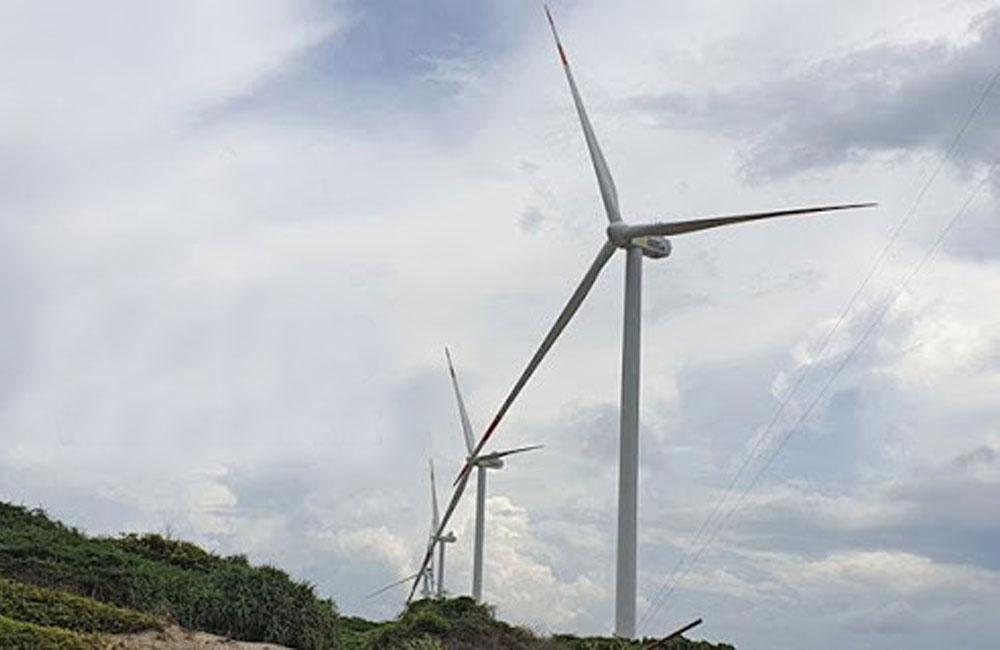
100 MW wind power plant now open
Sri Lanka’s largest and the first ever state owned wind power plant was declared open by Prime Minister Mahinda Rajapaksa in Mannar yesterday (09). The Ceylon Electricity Board (CEB) controlled wind power plant was constructed on a US$ 200 million loan from the Asian Development Bank (ADB).
Although the project was planned by Prime Minister Mahinda Rajapaksa in 2014 in his capacity as the then President of Sri Lanka, most of the work was carried out under the previous Yahapalana administration.
The Mannar Wind Power Project, which is at least a year behind its schedule, will add 100 MW to the national grid, according to the Ministry of Power.
The Ceylon Electricity Board (CEB) has incurred millions of rupees due to the delay in commissioning the wind power project.
The contract has been awarded by the CEB to Vestas Asia Pacific AS, a world-renowned Danish wind turbine manufacturer, to build the first large-scale wind farm in Sri Lanka in the southern coast of Mannar Island.
The project comprises 30 state-of-the-art wind turbines, each rated to 3.45 MW. The total installed capacity of this wind farm is 103.5 MW.
The Mannar Wind Power Project recently completed the final main gravity foundation along with the erection of the 10th wind turbine.
The primary contractor, Vestas Asia Pacific, along with their specialist civil engineering contractor, Access Engineering PLC, has achieved satisfactory progress amidst challenging conditions of the Covid-19 pandemic. The project work commenced in March 2019.
The CEB is considering installing six more turbines to produce an additional 20 MW of power with the remaining funds from the ADB.
Minister Gammanpila said that the power plant was constructed to use fossil and reusable energy for power generation in Sri Lanka, adding that it will further help safeguard the country’s foreign exchange, he said.
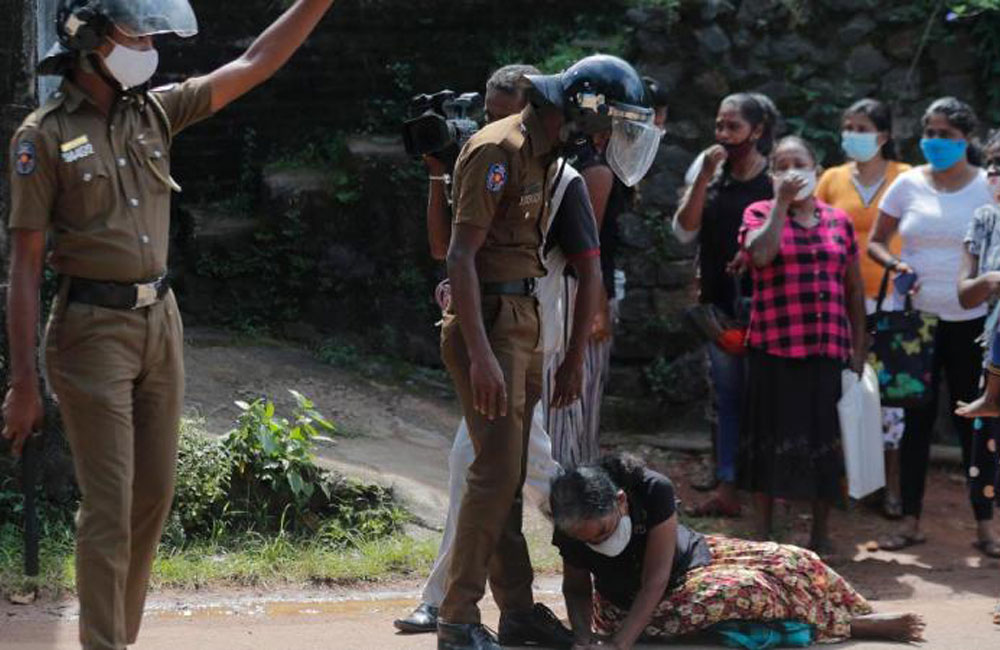
Top level Sri Lanka hospital unable to handle autopsies of virus victims
A leading hospital in Sri Lanka, where the bodies of the latest prison massacre victims were taken, does not have the facilities to conduct autopsies on bodies of people who were infected with the virus, according to the national rights watchdog.
This shocking revelation was made by the Human Rights Commission of Sri Lanka (HRCSL) in a letter to the head of the Colombo north teaching hospital urging him not to destroy bodies of those who died in the Mahara prison riot a week ago.
'Preserve the bodies'
The letter was written by the Commission at a time relatives and prison rights activists were casting doubts about claims by authorities that 9 out of 11 killed were identified as Covid 19 Victims.
While we are aware of the regulations in relation to disposal of bodies of those infected by the virus, we write to remind you that these bodies form part of an investigation that has already commenced,” wrote Ramani Muttettuwegama, Commissioner in charge of Investigations and Inquiries.
“Therefore, they should be preserved in a manner compatible with health requirements but not be cremated or destroyed in any other way until the autopsy proceedings in relation to their death is concluded. Further, where possible, external examination of the bodies such as photographs etc can be commenced and access should be provided to the forensic team for this purpose.”
She had further instructed the Hospital Director Dr. W. A. M. Shelton Perera to seek court approval to carry on the necessary investigations.
“Our inquiries reveal that although your hospital lacks the facilities for performing autopsies on bodies of people who were infected with the virus, the mortuary at the Infectious Diseases Hospital at Kotikawatte does have the required facilities and permission should be sought from the Magistrate for seeking their expertise if required.”
'They were shot' - CPRP
Earlier, HRCSL had recommended to commence forensic examination of the prison premises and hold post-mortem inquiries to understand cause of death of those who died and nature of injuries.
So far, six of the dead detainees have been identified. However, the cause of death has not been established.
They were shot to death, relatives and the Committee for the Protection of Prisoners Rights (CPPR) are convinced. Source: JDS
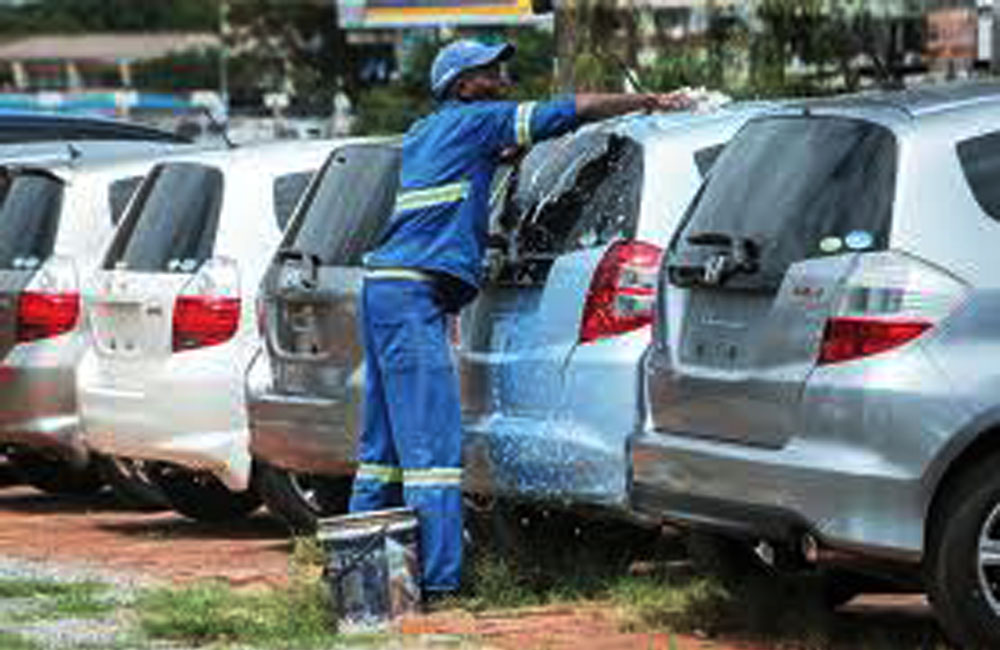
Sri Lankan automobile dealers in Japan demand to lift vehicle imports ban
Sri Lanka introduced measures to protect the country’s currency by slapping a temporary vehicle import ban in March this year in the face of the economic impacts caused by COVID-19.
Under this set up, around 1300 vehicles have been struck in Japanese ports due to Sri Lanka's import restrictions.
Sri Lankan vehicle exporters in Japan, holding a special press conference in Tokyo stated that this decision by the Government is threatening the jobs of Sri Lankans involved in the automobile industry in Japan.
They immediately requested the government to grant permissions for vehicles that were purchased to fulfill orders before March, 20.
Sri Lankan Automobile Association in Japan immediately notified the Sri Lankan embassy in Tokyo to humbly request the Sri Lankan government to help them export vehicles that they have already purchased before the import ban regulation was placed on March 20.
They said that they have still not seen a favourable response and this has resulted in pushing most of our Sri Lankan businesses towards bankruptcy. Around 2000 Sri Lankans working in Japan in this automobile industry have been severely affected by this.
They expressed the hope that the Sri Lankan government would give them a favourable relief to release the vehicles that have been purchased before March 20.
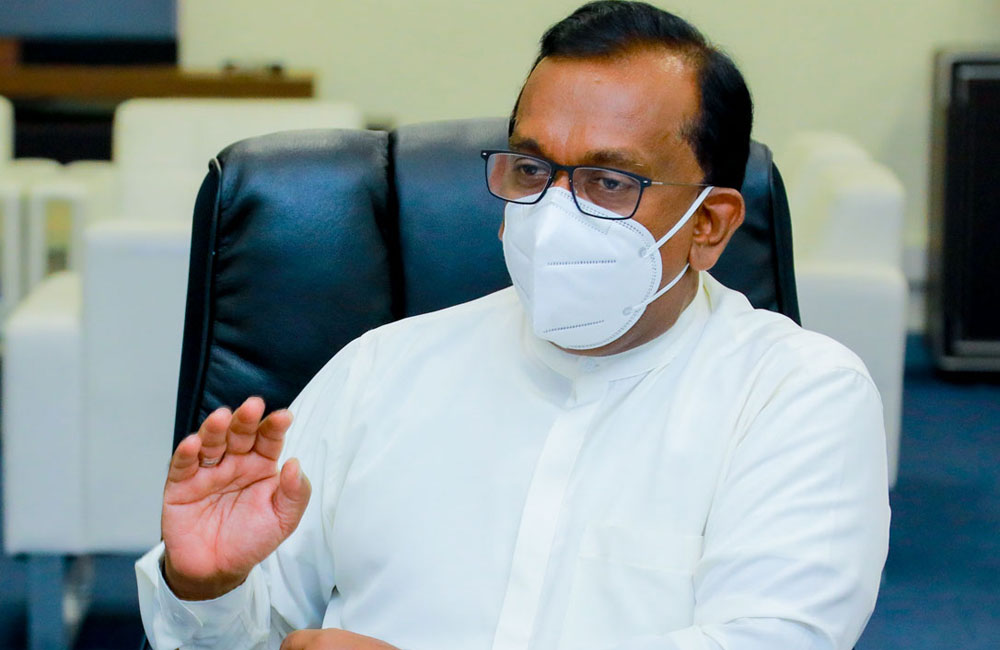
Agriculture Ministry allocates LKR 700 million for fruit exports
The Ministry of Agriculture will provide LKR 700 million for 2000 families to cultivate fruits for the export market with the aim of uplifting the economy of the poor farming community. The Ministry in a statement yesterday (11) said that they have decided to provide Rs. 500,000 per family in Nawalapitiya, Gampola, Udunuwara and Hewaheta electorates in the Kandy District through the Innovation Project implemented with the assistance of the World Bank.
The specialty here is the cultivation of these products directly for the export market.
Under the project, the farmer will be provided with highly productive plants that meet foreign market demand, drip technology and the technical knowledge and understanding required for a high quality product. Further, state-of-the-art processing centres will be set up for value addition of the harvest.
Banana, guava, pineapple and avocado fruits will be cultivated for export purposes under this project.
Representatives of the Dole Company who met the Minister of Agriculture Mahindananda Aluthgamage at the Ministry of Agriculture agreed to create a foreign market for the produce of these farmers.
Furthermore, agricultural products will be exported to the Middle East and the Philippines.
The project will also be launched in twelve more districts in Sri Lanka and work has already commenced in five districts.
The first fruit container is set to be exported in the first quarter of next year.
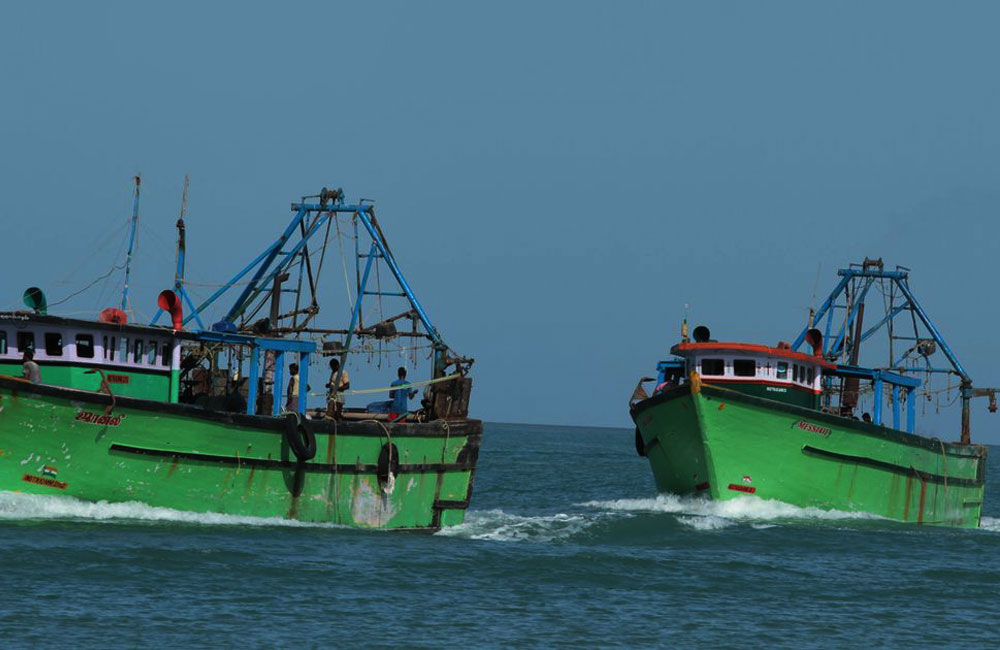
India assures Sri Lanka of swift measures to resolve fishermen’s issue
India has assured the Sri Lanka that they will take prompt action to resolve the issue of Indian fishermen encroaching on Sri Lanka's territorial waters which has had a severe impact on local fishermen and their livelihoods.
Indian High Commissioner Gopal Baglay has given this pledge when he called on Foreign Minister Dinesh Gunawardena and the Minister of Fisheries Douglas Devananda at the Ministry of Foreign Relations yesterday (07), Indian High Commission in Colombo announced.
He stressed the need to continue to deal with the matters related to fishermen and their boats in a humanitarian manner, in accordance with the existing understandings.
The High Commissioner highlighted concrete steps taken by both the central government of India and the state government of Tamil Nadu in addressing all dimensions of the issue and specifically underlined India’s ongoing measures to support and encourage Indian fishermen to practise deep sea fishing.
He expressed the hope that the next meeting of the bilateral mechanism on matters pertaining to fishermen could soon be arranged online.
With regard to a proposal for joint management of the Palk Bay and Gulf of Mannar by Fisheries Minister Douglas Devananda, the High Commissioner shared that the forward looking elements in the proposal needed to be examined in greater detail.
He thanked the Sri Lankan government for organising the 4th NSA level Trilateral Meeting on Maritime Security held in Colombo on November 28.
The two countries have agreed at the meeting that enhanced cooperation among various countries, particularly Sri Lanka and India, is crucial for addressing challenges like terrorism, radicalisation, organised crime, drug trafficking, etc. in our region.
The High Commissioner expressed the confidence that India-Sri Lanka relations will reach new heights in the coming year.
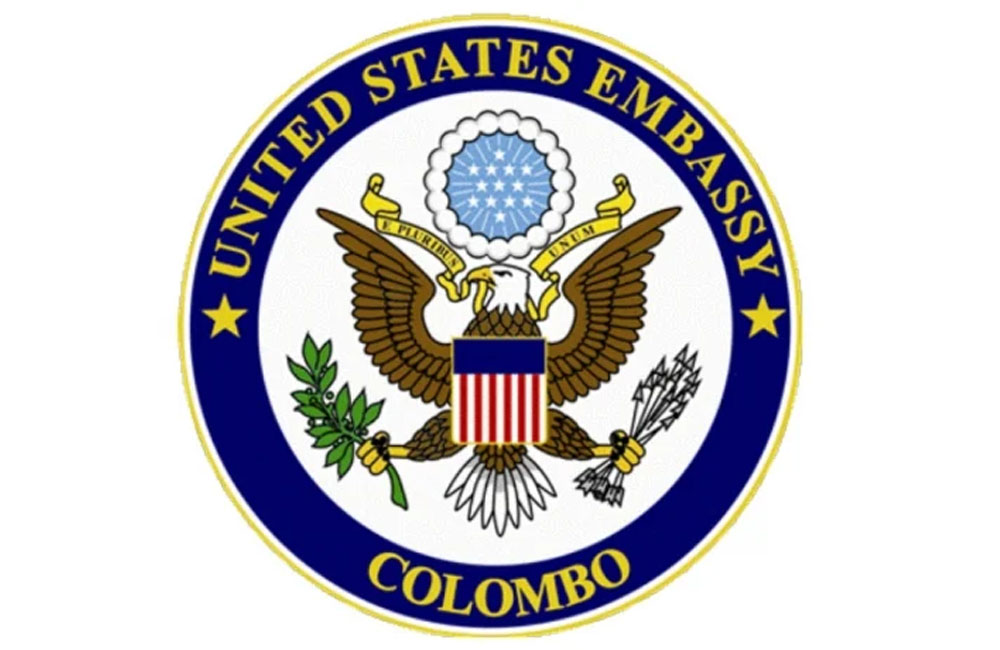
US launches LKR 3.6 billion project to economically empower Sri Lankan women
The United States launched a new LKR 3.6 billion (USD 19.5 million) initiative to help small businesses and economically empower Sri Lankan women.
The Private Sector Development Project, which is funded through the U.S. Agency for International Development (USAID), will provide technical assistance and financing to small businesses in the tourism, technology, and commercial care industries, the US embassy said in statement today (10).
It will also help Sri Lanka weather the economic impact of COVID-19 by providing much needed financial assistance through which businesses will be able to expand job opportunities for women and increase profits thanks to better business practices. Strengthening resilience in the face of the pandemic is a key step toward a post-COVID economic recovery.
“This project demonstrates the United States’ long-term commitment to engage the private sector in development cooperation that shape market-driven solutions to achieve sustained impacts,” said U.S. Ambassador to Sri Lanka Alaina B. Tepltiz. “Most importantly, this timely assistance will also mitigate the economic effects of COVID-19 in Sri Lanka,” she said.
The initiative will promote innovation and entrepreneurship and provide incentives for Sri Lankan financial institutions to support under-served communities in rural areas throughout the country.
It will also encourage businesses to hire more women. Studies show that when women are economically empowered, they reinvest back into their families and communities, which drives economic growth. More information on the COVID-19 funding opportunity can be obtained via the link below. https://thepalladiumgroup.com/tender/Funding-Opportunity-Notice-Innovative-Concepts-for-COVID-19-Economic-Relief-and-Adaptation-in-Sri-Lanka
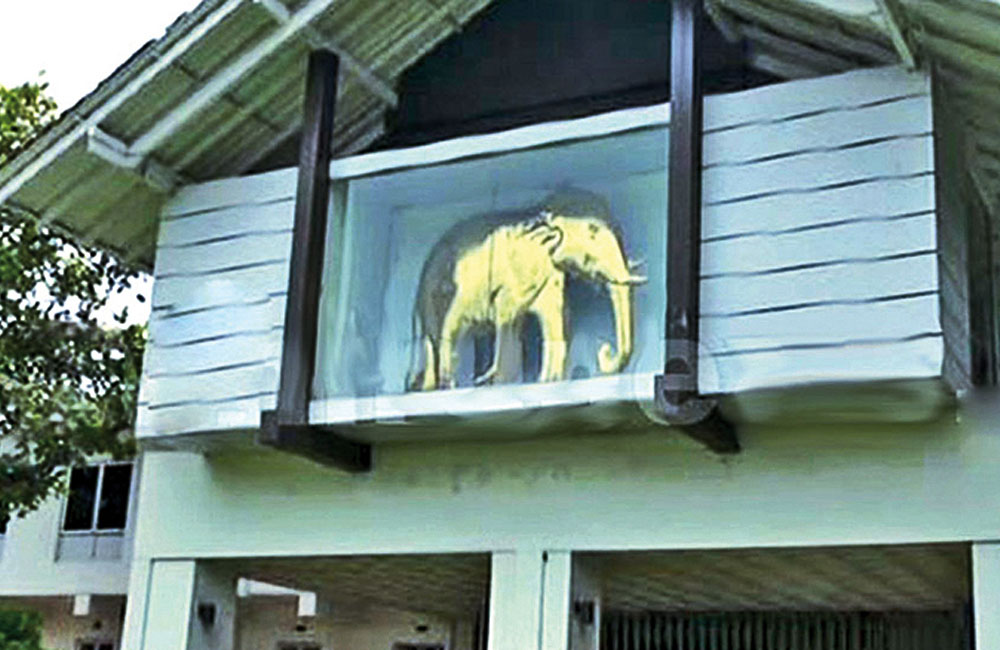
UNP Leader uses personal funds to pay salaries of ‘Sirikotha’ staff
The country's oldest political party, the United National Party celebrated its 74th anniversary recently in the backdrop of the party's most severe election reversal amidst its party machinery crumbling with its cash strapped head quarters 'Srikotha' on the verge of closing down.
As the party struggles with calls for internal changes from its members, the choice of the party's next leader remains a hard one - youth or seniority - namely Ruwan Wijewardene or Karu Jayasuriya.
UNP leader Ranil Wickremasinghe has stepped into infuse life blood to maintain the administrative functions of UNP by providing millions of rupees out of his pocket to pay salarees of the staff
He has donated Rs. 3 million from his personal money to pay the salaries of the staff of the UNP headquarters Sirikotha in Pita Kotte.
Acting General Secretary Shamal Senarath confirmed that Wickremesinghe paid this amount to pay last month's salary on November 25.
Wickremesinghe has given this money to pay the salaries of 36 staff members working at the Sirikotha UNP headquarters.
Acting Secretary General said that Wickremesinghe has never neglected his duties for the party, irrespective of the challenging circumstances.
Several media reports stated recently that the UNP headquarters had run into bankruptcy with the party being unable to pay the salaries of the staff members attached to Sirikotha.
The party is yet to nominate a member for the single national list slot which they managed to secure at the last Parliamentary election.
Rebuilding the United National Party (UNP) has gained unprecedented impetus with the latest election defeats.
The mediations, painful at times, have nonetheless yielded a crucial discussion today, which the country will be watching with mixed feelings of hope.
Bludgeoned by a record number of election defeats on the trot, the UNP leadership finally yielded. Wickremesinghe’s view that he is willing to step aside should a competent replacement be found finally brought hope to party stalwarts who have been pushing reforms in vain.
IT also sparked fear among a faction that watched the moves of former UNPer and Opposition leader Sajith Premadasa and viewed them as being vengeful and lacking in political acumen.
Page 258 of 533